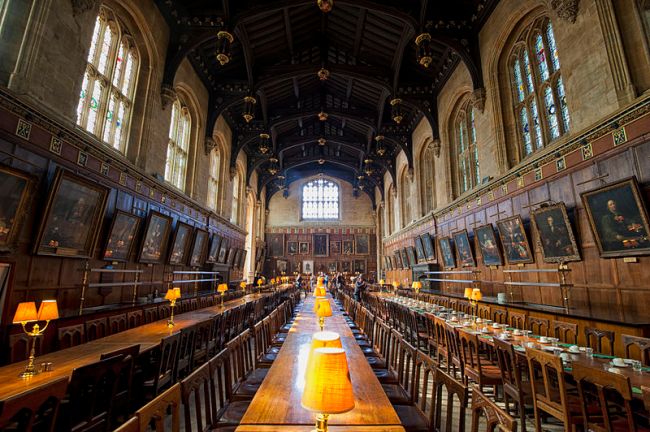I went to Oxford Literary Festival yesterday. For those of you who may have missed it, I’m a bit smitten with Oxford. It’s one of those cities where which sort of beats with story and history – it’s a fascinating and oddly humbling place.
The first event I went to was an event with Kevin Crossley-Holland talked about the history of the wizard. Wait, no, I got that wrong. The first event I attended was Merlin himself talking about wizards and magic in his timbre-filled voice, echoing through the hall and up through the stained glass wizards. There is something spellbinding about the buildings in Oxford, and Christ Church Hall is full of story. It is almost tangible and to sit there with a bunch of people that you’ve never met, all of you with arms resting on tables and bodies leaning forward, chanting: “Set him Free” as Merlin crept down towards the dais – it was something quite spectacular. I am still full of awe for that moment.

The other event I attended was very, very different but rather spellbinding in its own way. Chaired by Tony Bradman, this event saw him and three other authors – Bernard Ashley, Jamila Gavin and Marcia Williams – talk about the issues on and around writing about World War One. Bradman has just edited an anthology of stories around the first world war and I was particularly keen to hear about this (talk about a dream team – the authors include Adele Geras, Jamila Gavin and Linda Newbery!). To my shame, I’m not hugely read on Ashley’s work, nor Williams’ but I think that will be changing fairly swiftly. Marcia Williams’ ‘Archie’s War’ is one that I’ve already got out from the library and Ashley’s ‘Shadow of the Zeppelin’ sounds fascinating too.
Hearing these authors talk made me a bit emotional actually (yes, there is a reason why I try to go to these sorts of things by myself). All of them spoke with such power and conviction about their work. It was impossible to not gain a sort of fervent faith in the validity of storytelling and the importance of it and to understand history remain accessible to us all. Bradman, in particular, spoke about how, when editing the anthology, that it was important to him that the reader understood the experience of others in it – such as the German experience, the Irish experience and the experience of fighting in the East.
I particularly loved hearing Jamila Gavin speak. I’ve been privileged enough to hear her talk before but really, she is such a graceful speaker with a very quiet eloquence, she is one to fight through crowds to hear again. As part of her research for her story, she told of how she looked through a world of photographic evidence from world war one in order to try and find an Indian soldier – she found one.
I can’t reccommend this sort of stuff enough. It makes me believe, so much, in the power of literature and of books and of the sheer weight and import that children’s books hold in the world. And it made me think a lot of the trust we place in them, how societally vital they are, and how there are people everywhere who want to get these books to the right people at the right time. A joy. A humbling, moving, beloved, joy.
(And oh, oh god, Jamila Gavin is so good you guys!)
I have Shadow of the Zeppelin waiting by my bed for once conference reading is complete 🙂
Oh, let me know! I loved the sound of it!
Lucky, lucky, lucky you. I love Oxford (I did a term at New College). And I love author talks and these sounded really great. I glad you really enjoyed it.
Thank you 🙂 (And lucky you to do a term at New! How exciting!)